|

|
THE BAPTIST STUDIES
BULLETIN
"A Monthly Emagazine, Bridging Baptists Yesterday and
Today"
December 2005
Vol. 4 No. 12
|
Visit The Center for Baptist
Studies' Web Site at
www.centerforbaptiststudies.org
|
|
Produced
by The Center for Baptist Studies, Mercer University
Walter B. Shurden, Executive Editor, The
Baptist Studies Bulletin
Bruce T. Gourley, Editor, The
Baptist Studies Bulletin
Wil Platt, Associate Editor, The Baptist Studies
Bulletin
|
|
The Center for
Baptist Studies
wishes all our subscribers
A Blessed Advent,
A Merry Christmas, and
A Happy New Year.
|
|
Table of
Contents
|
TABLE OF CONTENTS:
Special Announcement
: The Center for Baptist Studies
Unveils New Website
www.centerforbaptiststudies.org
I Believe . . .
: Walter B. Shurden
"A
Jimmy Carter Kind of Baptist"
The Baptist Soapbox: Guy Sayles
"Fundamentalism Advancing in North Carolina"
Bulletin
Special: Brent Walker
"Is There a War on Christmas?"
Dispatches From the Frontlines of America's
Culture War:
Bruce Prescott
"Jerry Falwell's 'Friend or Foe'
Christmas Campaign"
Baptists, the Bible,
and the Poor: Charles E.
Poole
"Don't be
Paralyzed by Christmas"
Baptist Women Ministers You Should Know:
Pamela Durso
"Laura Johnson"
Writing Local Church
History: Bruce T. Gourley
"Online Helps for Writing Local Church History"
BSB Book Review:
Religious
Pluralism in America:
The Contentious History of a Founding Ideal by William R. Hutchison
Reviewed
by William E. Hull
Dates to Note
Note: To print the BSB, set your printer's left
and right margins to .4 inches or less.
|
To
change / add / delete your email for the Baptist Studies Bulletin, please
click here.
|
|
Netscape users:
If
you need to increase the font size on your screen, click "view"
then "increase font."
|
Note: You are free
to duplicate and circulate the articles in BSB or to use quotations
from our articles. We would, however, appreciate a good word about where
you found your material. It makes us look good! Thanks.
|
|
Special |
Special Announcement:
The Center for Baptist Studies Unveils New
Website
Following months of design work and
solicitation of feedback from a variety of persons, The Center for Baptist
Studies formally announces its new website with this publication of the
Baptist Studies Bulletin.
The new URL
for TCBS is:
www.centerforbaptiststudies.org. The site itself has been completely
redesigned to make it more attractive and user-friendly. All information
from the old site has been retained within the new site, and new material has been added. Please bookmark the new URL in your web browser.
If you have a website which links to TCBS, we request that you update the link
to the URL above.
Table Of Contents |
|
I
Believe |
"A
Jimmy Carter Kind of Baptist"
By Walter B. Shurden
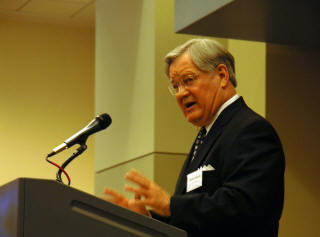 I believe . . . I believe . . .
that you would act magnanimously by running to the book store in these last
days before Christmas 2005, buying President Jimmy Carters’ book, Our
Endangered Values: America’s Moral Crisis, wrapping it bright red
paper, and placing it under the Christmas tree for your favorite Baptist loved
one. Like Daniel Vestal, national Coordinator of the Cooperative Baptist
Fellowship in Atlanta, I am unapologetically a “Jimmy Carter kind of Baptist.”
Jimmy Carter saves the Baptist name and restores the best of the Baptist
spirit. In a world where “Baptist” has been muddied by a narrowness of mind, a
sectarian spirit, and some people who are just to the right of Attila the Hun,
Baptists can find needed relief in President Carter’s openness of mind, his
ecumenical spirit, and his progressive conservatism.
His new book
consists of a series of brief essays, highly readable, that reflect Mr.
Carter’s concern for the moral crisis of our nation. It is not a book about
Baptists, but it is a book in which most of the Baptist readers of this
Bulletin will take genuine pride. Fundamentalists are not the only ones
who believe that “extensive and profound” transformations “are now taking
place in our nation’s basic moral values, public discourse, and political
philosophy” (Carter’s opening sentence).
Why the
transformations? President Carter believes that “the most important factor is
that fundamentalists have become increasingly influential in both religion and
government, and have managed to change the nuances and subtleties of historic
debate into black-and-white rigidities and the personal derogation of those
who dare to disagree” (3).
For readers of this
Bulletin, Carter says little that is new about religious
fundamentalism. Many will be staggered, however, by what he says in chapters
ten and eleven about how political fundamentalism is undercutting America’s
traditional moral values. This is the ex-president’s most important book thus
far. Before you wrap it up and put it under the tree for your loved one, do
yourself a favor. Read it.
Table Of Contents
|
|
Baptist
Soapbox
|
The Baptist Soapbox: Invited guests speak up and out on things Baptist
(therefore, the views expressed in this space are not necessarily those of The
Baptist Studies Bulletin, though sometimes they are).
Climbing upon the Soapbox this month is Guy Sayles,
pastor of First Baptist Church, Asheville, North Carolina.
"Fundamentalism Advancing in North Carolina"
By Guy Sayles
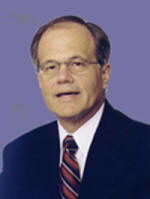 Throughout the 1990s, it appeared that fundamentalist and moderate Baptists in
North Carolina might find ways to live together in the same house. The
Baptist State Convention (BSC) developed multiple giving plans, one of which,
“Plan C,” allowed churches to make contributions to both the BSC and the
Cooperative Baptist Fellowship (CBF), without also supporting the Southern
Baptist Convention (SBC). Irenic leaders advocated for “shared leadership” of
the BSC, even though a proposal to make it an official policy was defeated in
1999. There was, if not an actual peace, at least a cease fire in the Tar
Heel state. Throughout the 1990s, it appeared that fundamentalist and moderate Baptists in
North Carolina might find ways to live together in the same house. The
Baptist State Convention (BSC) developed multiple giving plans, one of which,
“Plan C,” allowed churches to make contributions to both the BSC and the
Cooperative Baptist Fellowship (CBF), without also supporting the Southern
Baptist Convention (SBC). Irenic leaders advocated for “shared leadership” of
the BSC, even though a proposal to make it an official policy was defeated in
1999. There was, if not an actual peace, at least a cease fire in the Tar
Heel state.
The cease
fire lasted until fundamentalists won enough elections—now nine in a row—to make their sharing of leadership
unnecessary. Their power has grown, their rhetoric has become more heated,
and their openness to cooperation with moderates has eroded.
For instance,
this year’s BSC Nominating Committee excluded from consideration anyone who is
a member of a church supportive of the Alliance of Baptists, and the committee
made a determined effort to place more conservatives on the board of the
Biblical Recorder. Despite the fact that, at this year’s annual meeting
of the BSC, messengers approved a two-year budget which retains multiple
giving plans, it is clear that support is growing for a single plan which
would be hardwired exclusively to the SBC. Messengers also decided that any
contributions made to the CBF through one of the alternative giving plans
shall no longer be considered “Cooperative Program” gifts. In addition, Bill
Sanderson, president of Conservative Carolina Baptists, offered a motion,
which was overwhelmingly approved, that directs the BSC Board of Directors to
find ways to “develop and implement” policies which will exclude from the BSC
any church deemed to be too welcoming of homosexuals, a motion which echoed
changes made to the Constitution of the SBC in 1993.
Being
exclusively “Southern Baptist” is, without question, the fundamentalists’
overarching goal. Explaining the recommendation that gifts to the CBF no
longer be considered Cooperative Program contributions, BSC Budget Committee
chair Leroy Burke said: “Because we are Southern Baptists . . . We have to
decide if we’re Southern Baptist or CBF.” (Tony Cartledge,
journal.biblicalrecorder.org, 10.24.05).
Fundamentalists apparently can’t imagine that the BSC could have an identity
apart from the SBC’s. For them, the state convention is a regional
distribution center for the SBC’s theology and programs and a funding source
for its missions boards and seminaries. Unalloyed loyalty to the SBC is their
litmus test for the BSC’s legitimacy and their singular criterion for a
congregation’s participation in the BSC.
With
fundamentalists anxious to show us the door, moderates won’t stay in the house
much longer. Most of us are already out on the porch, talking about what is
next. For many, it will mean stepped-up involvement in the CBF of NC. For
some, it will mean the formation of ad hoc networks for shared ministry. For
almost all, it will mean finding ways to continue our support of the colleges
and universities, benevolent institutions, and disaster relief ministries
which were the glue that bound us to the BSC.
Inevitably,
fundamentalists will eliminate the BSC’s multiple giving plans. When they do,
local churches comprised of both SBC-loyalists and moderates will lose the
common ground that the BSC had provided. It will be harder for them to ignore
potentially divisive issues, especially the issue of congregational identity.
In fact, an enduring lesson of the conflicts among Southern Baptists is that
“identity work” is local work. “Denominations” can’t legitimately
confer identity on a church, but they can certainly co-opt it. Perhaps the
reclamation of a church’s responsibility for its own identity is an unexpected
gift from “the controversy.”
Table Of Contents
|
|
|
THE FIRST AMENDMENT to
the United States Constitution
Congress shall make no law respecting an establishment of
religion, or prohibiting the free exercise thereof; or abridging the
freedom of speech, or of the press; or the right of the people peaceably
to assemble, and to petition the government for a redress of grievances. |
|
Bulletin
Special |
Bulletin Special: This month we reprint an important article from the
Baptist Joint Committee for
Religious Liberty, authored by BJC Executive Director J. Brent Walker.
Respecting Religious Diversity
During the Holiday Season
By J. Brent Walker
 Are "Christian haters" and "professional atheists" engaged in an all-out war
on Christmas, as FOX News' anchor John Gibson claims? I don't think so—unless
one is prepared to say that President Bush and the First Lady are leading the
effort. This year's White House greeting card extends "best wishes for a
holiday season of hope and happiness." No mention of "Merry Christmas" from
the First Family.
Are "Christian haters" and "professional atheists" engaged in an all-out war
on Christmas, as FOX News' anchor John Gibson claims? I don't think so—unless
one is prepared to say that President Bush and the First Lady are leading the
effort. This year's White House greeting card extends "best wishes for a
holiday season of hope and happiness." No mention of "Merry Christmas" from
the First Family.
About a dozen holy
days are observed by various religious groups between Thanksgiving and New
Year's. For decades we have been confronted by that "December dilemma" of how
to acknowledge and celebrate winter religious holidays, usually in the context
of the schools, in a way that is constitutional and culturally sensitive.
People of good faith, including the Baptist Joint Committee, have worked long
and hard to develop guidelines that comply with the Supreme Court's
interpretation of the First Amendment's religion clauses, and respect the
amazing religious diversity in this country.
There is widespread
agreement that:
- Holiday concerts in the public schools can and
should include religious music along with the secular, as long as the sacred
does not dominate.
- Religious dramatic productions can be presented in
the public schools as long as they do not involve worship and are part of an
effort to use religious holidays as an occasion to teach about religion.
- Free standing crèches, as thoroughly religious
Christian symbols, should not be sponsored by government, but Christmas
trees and menorahs are sufficiently secular to allow their display without a
constitutional problem.
Having settled many of the legal issues, some are now bent on fighting battles
in a culture war against an enemy that does not exist. Some on the religious
and media right lament political correctness run amok by calling a Christmas
tree a "holiday tree" and extending "seasons greetings" instead of "Merry
Christmas." In fact, they have threatened lawsuits to rectify such
indiscretions and, in the private sector, encouraged a boycott of merchants
that fail to use the right words.
What irony and how sad—to
be picking a fight over what to call a season that for many celebrates the
coming of the Prince of Peace. We would all do well to take a deep breath and
exercise some common sense as we think and talk about this season.
Christmas is Christmas
and a tree is a tree. There's nothing wrong with calling it what it is: a
Christmas tree. And it is perfectly appropriate to extend a specific holiday
greeting such as my Jewish friends do when they wish me a "Merry Christmas,"
and I return a "Happy Hanukkah."
But often it's quite
appropriate to wish another "happy holidays" or "season's greetings." It's
just a matter of good manners and common courtesy. If I am talking to a person
whose religious affiliation I do not know, I will employ the more general
greeting. And the same goes for merchants who have advertised goods to
Americans of many religious traditions who may or may not celebrate Christmas.
None of this disparages
Christmas one iota or diminishes my enjoyment of it in the least.
Then why are these
culture warriors bound to start a brouhaha in the midst of the love, joy,
peace and hope of Advent?
It's part of a concerted
effort to affirm the mythical "Christian nation" status of the United States.
(By the way, the Puritans and many other religious people well into the 19th
century refused to celebrate Christmas because they thought it was unchristian
and not supported by Scripture). So, in the words of the title of the Beatles
song, "I, Me, Mine," it's all about ME and the brash assertion of MY supposed
right to impose my religion on others. Moreover, and I hope it is not a too
jaded thought, these bombastic diatribes about a war on Christmas attract
publicity and make for good fund raising. (Truth be known, the Christmas
spirit is threatened more by runaway commercialism—beginning just after
Halloween!?—than by any supposed cultural hostility to a holiday that more
than 90 percent of our citizens celebrate.)
No, we do not need
government promoting our religious holidays to the exclusion of others. Nor do
we need a corps of purity police trying to dissuade our efforts to respect the
religious diversity that is the hallmark of this country.
To
all of our readers, then: Merry Christmas, Happy Hanukkah, and a Joyous
Kwanzaa, Martyrdom Day of Guru Tegh Bahadur, Bodhi Day, Maunajiyaras Day,
Beginning of Masa'il, Nisf Sha'ban and Yalda Night, Yule and Shinto Winter
Solstice, and Ramadan! Or, happy holidays!
Table Of Contents |
|
Culture Wars |
Dispatches From the
Frontlines of America's Culture War:
In recent years, the subject of faith and politics in America has consistently
made headlines in secular newspapers as the Religious Right has sought to
dismantle the separation between church and state.
Bruce Prescott is the Executive Director of
Mainstream
Oklahoma Baptists, President of the Oklahoma Chapter of Americans United
for the Separation of Church and State, and host of the Sunday morning show
"Religious Talk" on KREF Radio 1400 AM.
"Jerry
Falwell's 'Friend or Foe' Christmas Campaign"
By
Bruce Prescott
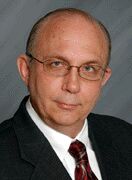
Christmas used to be associated with the “Prince of Peace.” Jerry Falwell,
Fox News, and a host of Religious Right organizations, however, have turned
the season into an annual “pre-emptive” offensive in America’s culture war.
Liberty Counsel, a legal group affiliated with Jerry Falwell, has been
organizing and leading a “Friend or Foe” Christmas campaign since 2003.
Essentially, “friends” are public schools, government agencies, and private
businesses that meet with the Christian Right’s approval by acknowledging
“Christmas.” “Foes,” on the other hand, are those who allegedly
“discriminate” against Christians by using “Happy Holidays” or “Seasons
Greetings” on their signs, displays or in greetings to their customers. In a
recent letter to pastors, Falwell offered “free legal assistance by Liberty
Counsel to individuals facing persecution for celebrating Christmas” at their
public school, government office, or workplace. Other than religious
broadcasters, Fox News, particularly Bill O’Reilly’s reporting about an
alleged “war on Christmas,” has been the primary media outlet for the
dissemination of “Friend or Foe” campaign developments.
Most of the instances in which American Christians claim to be persecuted for
their faith are really examples of their no longer being permitted to dominate
the stage or take over the public square. If everybody simply practiced the
golden rule, “Do unto others as you would have them do unto you,” about 90% of
these church/state skirmishes could be resolved.
A good example of this is Mustang, Oklahoma. Last year, the town was a front
in the annual Christmas culture war. Christians there threatened to sue the
school district for discrimination when the principal removed an annual “live”
nativity scene from a public elementary school’s Christmas play. Christians
alleged that they were being discriminated against because the play also
mentioned Kwanzaa and displayed a Menorah while only the nativity scene was
removed. “Political correctness” and a pervasive “secularism,” they said, were
taking Christ out of Christmas. The fact that the children sang "Silent
Night" which repeats twice that "Christ, the Savior is born" and repeats twice
"Jesus, Lord at his birth" was not enough to satisfy them.
In reality, the people in Mustang complained because children were not
required to stage a dramatic visual climax to a play that was designed
to give dramatic emphasis to the Christian religion. They wanted all
the school children to be involved in acting-out and role-playing a nativity
scene. In effect, they wanted an agency of the government–a public school–to
give token mention to minority faiths while elevating the majority faith.
They expected public school children from diverse religious backgrounds to
participate in a devotional exercise in which people from other faiths pay
homage to the lord of the majority faith.
Threats of lawsuits were dropped when school officials and community leaders
agreed to work together with Charles Haynes of the First Amendment Center to
create a religious liberty policy for the school district. The preamble to
the new policy, adopted on May 10, 2005 states,
Public
schools may neither instill nor inhibit religion. They must be places where
religion and religious conviction are treated with fairness and respect.
Mustang Public Schools uphold the First Amendment by protecting the religious
liberty rights of students of all faiths or no faith.
The proper role of religion in
the public school curriculum is academic and not devotional. Mustang Public
Schools strives to advance the students’ knowledge and appreciation of the
role that religion has played in all aspects of human history and development.
Falwell’s culture warriors have done their best to put a positive spin on the
outcome of last year’s skirmish in Mustang, Oklahoma. The truth is, the
school’s religious liberty policy and the community’s agreement to abide by
it, constitute a victory for advocates favoring separation of church and
state.
Table Of Contents |
|
Baptists
Bible and Poor
|
Baptists, the Bible, and the Poor: Charles E. Poole is a Baptist minister with Lifeshare
Community Ministries in Jackson, Mississippi where he delights in
ministering alongside the poor. "Chuck" Poole, a provocative
preacher and servant pastor, served Baptist churches for twenty-five years. Among
the churches he has served are First Baptist Church, Macon, GA, First Baptist
Church, Washington, DC, and Northminster Baptist Church, Jackson, MS.
"Don't be Paralyzed by Christmas"
By Charles E. Poole

Christmas has traveled a long way. It’s quite a distance from Bethlehem to
here, and an even longer journey from the incarnation of God in Jesus to the
long lines at Best Buy.
How we got from
shepherds and angels to tinsel and bows is sort of beside the point. The fact
is we are here, and, thus, we again face those annual “Christmas-specific”
questions about how best to help persons in poverty: Is it wise of us to
use money that could purchase groceries and diapers to provide toys and
bikes? Is it right for us to perpetuate the gift-giving culture that has
consumed Christmas by providing gifts to persons in poverty as though those
gifts are necessary for Christmas to be Christmas? And is it proper for
Christians to show up with help at Christmas if we aren’t involved year-round
in the lives of those who struggle?
I’m no
expert at all of this or any of this. And I’m well aware there are many layers
of complexity to those three Christmas questions. But, based on my
two-and-a-half years of full-time service alongside families in need, I would
say that the answers to those three Christmas questions are “Yes,” “Yes”
and “Yes.” As for question one, families in poverty need for their
children to be warm and well fed, but in addition to those basic necessities,
families in poverty also long for their children to have moments of joy that
we all believe are basic to life. To the extent that our equation of “joy”
with gifts is a product of a commercial culture, there isn’t much we can do to
change that for others until we change it for ourselves. Or, to put it another
way, unless I’m ready to stop giving gifts to my own family in an effort to
correct excessive commercialism, I can’t fail to provide gifts to families in
need on the grounds that “Christmas is too commercial.” And as for question
three, its much better to show up every December than it is to never shown up
at all. Families in need would welcome helpful concern all year round, but
help at Christmas only is much better than no help at all.
Those answers are
admittedly simple responses to obviously complex questions. They don’t address
all the nuances or tackle all the issues. But the truth is, there are people
all around us in need of comfort, relief and joy this December. We can
paralyze ourselves with angst over the annual Christmas questions, or we can
“suit up and show up” with whatever comfort, relief, and joy we can offer.
Given the choice between carefully nuanced indecision and generously
compassionate action, the path all of a sudden seems a little more clear.
Table Of Contents
|
|
Baptist Women Ministers
|
Baptist Women Ministers You Should Know:
The writer of
this series, Pam Durso, is the Associate Director of the
Baptist History and
Heritage Society. According to Pam, "In
recent years, I have been privileged to meet and befriend a good number of
Baptist women ministers, and I have been inspired by their stories. They have
faced opposition and criticism, and yet they have persevered in following
God's calling. Their courage has given me hope and has also brought hope to
Baptists who dream of a new day when churches will embrace all those whom God
has called and gifted for ministry." She, along with her husband Keith,
recently co-edited Courage and Hope: The Stories of Ten Baptist Women
Ministers.
"Laura Johnson"
by Pamela Durso
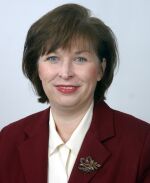
The
ordination of Addie Davis by Watts Street Baptist Church in Durham, North
Carolina on August 9, 1964, marked a new era for Baptists, and in the
forty-one years since that event, thousands of women have been ordained by
Baptist churches in the South, including Laura Johnson. Laura is the pastor of
Sharon Baptist Church in Smithfield, North Carolina, a church which called her
first as their interim associate pastor and then called her as their senior
pastor.
Laura’s
journey to the pastorate was a difficult one. She grew up in Bristol,
Tennessee, living in public housing and receiving free school meals throughout
much of her childhood. Her childhood was characterized by rocky relationships
with an abusive father and an abusive, alcoholic step-father. When
candy-bearing messengers from Tennessee Avenue Baptist Church came to her door
and invited her to church, Laura gladly boarded their bus. She made her
profession of faith at that church as a ten year old and continued to be a
faithful participant in various churches throughout her teenage years.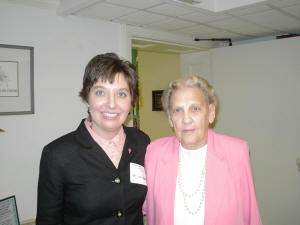
Because of
her good grades and strong work ethic, Laura earned a college scholarship
which was given by an anonymous Christian donor, and, in 1991, she graduated
from King College. Over the next five years, her superb writing ability led to
technical writing jobs, and numerous physical problems led to repeated
surgeries. During this time, she married and moved to California. There she
first felt a need to do something more meaningful, to somehow connect her
vocation with her avocation. Sensing a call to ministry, she enrolled as a
student at Fuller Theological Seminary’s Northern Extension.
Although difficult to
imagine, the most painful period in Laura’s life was yet to come. Early in
1997, she suffered a miscarriage, and in 2000, her marriage ended. These
events left her deeply depressed, but her faith somehow sustained her. Now
living in North Carolina, she became involved in a divorce recovery group,
remarried, and later enrolled at Campbell University Divinity School. Despite
all that had happened to her, she knew that she was called to finish school
and to minister to others.
While in divinity school, Laura did
a summer Clinical Pastoral Education (CPE) internship at Duke University
Medical Center. She also underwent several other surgeries. All these events
led her to make an important connection between her own suffering and her call
to ministry. She now knew that she had been called to find the meaning in her
own suffering and to help others also find meaning in suffering.
Laura continued to seek
opportunities to minister. She completed another unit of CPE in 2003 at a
psychiatric hospital, where she worked with many patients who had traumatic
histories similar to hers, and she did a CPE residency at Alamance Regional
Medical Center. In October 2003, after graduating from divinity school, Sharon
Baptist Church interviewed Laura for the part-time interim associate pastor
position that could lead to the full-time senior pastor position. It was a
bold move for a small Baptist church in Johnston County, North Carolina, and
in May 2004, the church took another bold step and called Laura as their
pastor.
While at Sharon Baptist Church,
Laura has focused much attention on pastoral care and counseling. To continue
her education in pastoral counseling, Laura recently completed a fourth unit
of CPE, while pastoring full-time and commuting ninety minutes to the
hospital. She has since been endorsed as a pastoral counselor by the
Cooperative Baptist Fellowship.
Although Laura has undergone three
more surgeries in the last two years, she holds tightly to her faith,
believing that God is ever-present and knowing that she has been called,
educated, and equipped to do the ministry to which she now devotes her life.
In August 2004, Laura attended the
fortieth anniversary celebration of the ordination of Addie Davis. There at
Watts Street Baptist Church in Durham, North Carolina, Laura met Addie,
another courageous woman who also had been faithful to her calling, and the
young woman pastor and the elderly woman pastor briefly spoke of their
journeys in ministry.
Note: Pictured above is
Laura Johnson, on the left, and Addie Davis, on the right. Addie Davis passed away
December 3, 2005, following a brief illness.
Table Of Contents
|
|
Local Church History
|
Writing Local Church
History: The story of
Baptists in America is the stories of local churches of believers. In
the 21st century, more resources than ever are available to help the local
church, whether large or small, publish its unique history. This series
of articles spotlights the growing importance of local church history and
offers perspective and insight from church historians working in the field of
local church history. This month's contributor is Bruce Gourley,
Associate Director of The Center for Baptist Studies.
"Online Helps for Writing Local Church History"
By Bruce T. Gourley
 The Internet provides a variety of helpful resources in the writing of local
church histories. Following is a listing of recommended websites: The Internet provides a variety of helpful resources in the writing of local
church histories. Following is a listing of recommended websites:
Southern
Baptist Historical Library and Archives. The SBHLA maintains
a collection of articles that would be of interest to individuals involved in
writing local church history. Currently 12 articles are available
online.
Kentucky Baptist Convention Archives. Cheryl Doty, KBC
Archivist, provides a brief introduction to "Writing Your Church History."
The document is in PDF Format.
Baptist General Convention of Texas, Baptist Historical Collection.
The BHS has a number of resources available for local churches, covering all
aspects of writing local church histories, including:
Good
History Begins in Small Churches
Guide for Church History Writers
How to Prepare an Oral History
How
to Start a Church Archives
How to Write a Church History
Procedure in Writing the History of a Baptist Church
Suggestions for a Church History Committee
Resources from Other Denominations. Following is a list of
resources from other denominations from which helpful information may be
gleaned in the writing of Baptist local church histories:
Guide to Preparing a Congregational History (Church of the Brethren)
Writing Your Church History (Church of the Nazarene)
Bibliographic Resources for Writing Local Church History (Wheaton College)
An Introduction to Writing Local Church History (Pentecostal)
Writing a Parish History (Uniting Church in Australia)
Guidelines for Writing Church History (Disciples of Christ)
Writing Church History (Presbyterian Church of America)
General Resource Helps for
Writing Local Church Histories (UM Church)
Thanks to these resources readily available on the Internet, the prospect of
writing a Baptist local church history need not be a daunting task for any of
the parties involved.
Table Of Contents
|
|
|
The Baptist Studies Bulletin Recommends:
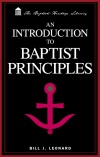 An Introduction to Baptist Principles:
This new booklet, by Bill J.
Leonard, Dean and Professor of Church History at the Wake Forest University
Divinity School, zeroes in on such principles as a regenerate church, biblical
authority, liberty of conscience, congregational autonomy, associational
fellowship, the priesthood of all believers, Baptist ministry and ordination,
believer’s baptism by immersion, the Lord’s Supper, religious liberty and
loyalty to the state, and missions. This booklet can be used in Sunday School
classes, discipleship training classes, and new church member orientation.
To order, go to www.baptisthistory.org. An Introduction to Baptist Principles:
This new booklet, by Bill J.
Leonard, Dean and Professor of Church History at the Wake Forest University
Divinity School, zeroes in on such principles as a regenerate church, biblical
authority, liberty of conscience, congregational autonomy, associational
fellowship, the priesthood of all believers, Baptist ministry and ordination,
believer’s baptism by immersion, the Lord’s Supper, religious liberty and
loyalty to the state, and missions. This booklet can be used in Sunday School
classes, discipleship training classes, and new church member orientation.
To order, go to www.baptisthistory.org.
|
|
Book Review |
BSB Book Review: BSB presents a review of
Religious Pluralism in America: The Contentious History of a Founding
Ideal by William R. Hutchison (Yale University Press, 2003).
William E. Hull, Research
Professor, Samford University, is our reviewer.
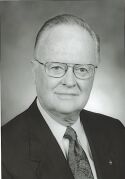
At the heart of the church/state dilemma is a tension nicely captured by the
motto of the United States, e pluribus unum, “one out of many.” We
know of the founding ideals that contribute to our unity, several of them
summarized in the Declaration of Independence, as well as of the demographic
differences that contribute to our diversity, but where does religion fit in
this dialectic? Should it contribute more to the unum or to the
pluribus that we are forever seeking to keep in balance? Early Baptists
were strongly on the side of nonconformity to the point of risking persecution
for their distinctives, but some latter-day Baptists are quick to form
coalitions with almost anyone who will embrace their political ideology in an
effort to create a monolithic voting block.
The veteran Harvard
Divinity School historian of American religion, William R. Hutchison, has
given us an informal but informative survey of the many forms that “the
perennial, indeed primordial, tension between the One and the Many” (p.10) has
assumed throughout our nation’s life. Two themes dominate this selective
retelling of this “contentious history.” The first is the enormous diversity
of religion itself at every stage of the journey. The colonial and
revolutionary periods found Congregationalists in New England, Presbyterians
and Quakers in the Mid-Atlantic states, with Anglicans in the south. The
first half of the nineteenth century witnessed the rise not only of the
Baptists and the Methodists, but of such exotic groups as the Mormons,
Unitarians, Transcendentalists, and a host of experimental communities (e.g.
Oneida). A kind of generalized evangelicalism became ascendant in the latter
half of the nineteenth century but it was steadily undermined by the massive
immigration of ethnic groups as well as by the industrialization and
urbanization that eroded its rural strongholds. Protestantism was further
weakened in the first half of the twentieth century by the rise of both
liberalism and fundamentalism, by the secular threat of scientism, and by
internal challenges from the Social Gospel and neo-orthodoxy to the point that
it lost hegemony in the second half of the century.
What Hutchison succeeds
in showing is that, in our dynamic, expansive, and innovative culture,
religion becomes so volatile that no doctrinal or denominational group has the
stability to function as a unifying force in American life. Therefore, as a
second major theme, he insists that religion itself must learn to honor its
own amazing diversity, and he does this by tracing how an ever more spacious
practice of pluralism has emerged, not from some theoretical concept, but from
the ceaseless interaction of American religion with its own historical
context. The first stage is toleration, the willingness of a dominant group
to grant a deviant group the legal right to exist as outsiders. The second
stage is inclusion, the acceptance of the marginalized as insiders so long as
they do not challenge the status quo. The third stage is participation in
which everyone shares responsibility for defining and implementing the social
agenda. Despite the recent rise of the Religious Right with its unitive
ideology, Hutchison seems convinced that history is on the side of the slow
and fitful progress that he has so ably traced.
The book concludes with
a strong defense of participatory pluralism based on the nature of democracy,
of theism, and of post-ethnic voluntarism. Baptists need to pay attention to
this quintessential liberal if only because we were liberals, if not radicals,
on the church/state issue when our identity was first defined and formed. In
response to those dismissive of his “advanced form of pluralism,” Hutchison
well roots it in the Baptist idea: “if I do concede your right to hold firmly
to your beliefs, it makes no sense at all for me to deny or compromise that
same right in relation to myself. Pluralism in its leading contemporary
meaning—support for group identity and the integrity of competing
beliefs—emphatically does not imply ‘lack of all conviction’ . . .” (p. 235).
Table Of Contents
|
|
Dates to
Note
|
Dates to Note
January 23-25, 2006,
"Spiritual Formation Regional Retreat,"
Montreat Conference Center, North Carolina. The retreat is
open to senior pastors, including pastors who serve as lone ministerial staff
in smaller congregations. Other retreat locations are Texas, April 3-5;
Kentucky, Sept. 11-13; and Atlanta at a date to be determined. Registration is
available on a first-come basis.
Click here to register online. For more information, contact Rick Bennett
at (770) 220-1605 or
rbennett@thefellowship.info.
February 8-9, 2006,
"Dr. Henry Mugabe's Visit to Macon." Sponsored by CBF/GA, The Christianity
Department (Mercer), The Office of the Minister to the University (Mercer),
The Center for Baptist Studies (Mercer), Vineville Baptist Church (Macon), and
First Baptist Church of Christ of Macon. Dr. Mugabe is the president of the
Baptist Theological Seminary in Zimbabwe. For additional information
click here or contact
Bruce T. Gourley at 478-301-5467 or email
gourley_bt@mercer.edu.
February 8-11, 2006,
Current Retreat, First Baptist Decatur, Atlanta.
Current is a group of young
Baptist ministers, leaders, and divinity students who seek to connect young
Baptists through the Cooperative Baptist Fellowship.
More information is available online.
May 4-5, 2006, "The University Campus: Tomorrow's
Moderate Baptists." First Baptist Church, Decatur, GA. Sponsored
by National Cooperative Baptist Fellowship, Cooperative Baptist Fellowship of
Georgia, and The Center for Baptist Studies. For more information, email
gourley_bt@mercer.edu.
July 12-15, 2006, International Conference on Baptist Studies IV, Acadia
University, Wolfville, Nova Scotia, Canada.
The Fourth International
Conference on Baptist Studies will help to mark the centennial celebrations of
the Convention of Atlantic Baptist Churches. The theme is "Baptists and
Mission," which includes home and foreign missions, evangelism, and social
concern. For
more information, contact Professor D.
W. Bebbington, Department of History, University of Stirling, Stirling FK9
4TB, Scotland, United Kingdom (e-mail:
d.w.bebbington@stir.ac.uk).
June 21-24, 2006, National Cooperative Baptist
Fellowship General Assembly, Georgia World Congress Center, Atlanta, GA.
For more information, go to
http://www.thefellowship.info/CL/GeneralAssembly/2006.icm.
For a full calendar of Baptist events, visit the
Online Baptist Community Calendar.
Table Of Contents
|
|
|
|
|
|
If
you do not wish to receive BSB any longer, please
Click Here to unsubscribe.
|

 I believe . . .
I believe . . . Throughout the 1990s, it appeared that fundamentalist and moderate Baptists in
North Carolina might find ways to live together in the same house. The
Baptist State Convention (BSC) developed multiple giving plans, one of which,
“Plan C,” allowed churches to make contributions to both the BSC and the
Cooperative Baptist Fellowship (CBF), without also supporting the Southern
Baptist Convention (SBC). Irenic leaders advocated for “shared leadership” of
the BSC, even though a proposal to make it an official policy was defeated in
1999. There was, if not an actual peace, at least a cease fire in the Tar
Heel state.
Throughout the 1990s, it appeared that fundamentalist and moderate Baptists in
North Carolina might find ways to live together in the same house. The
Baptist State Convention (BSC) developed multiple giving plans, one of which,
“Plan C,” allowed churches to make contributions to both the BSC and the
Cooperative Baptist Fellowship (CBF), without also supporting the Southern
Baptist Convention (SBC). Irenic leaders advocated for “shared leadership” of
the BSC, even though a proposal to make it an official policy was defeated in
1999. There was, if not an actual peace, at least a cease fire in the Tar
Heel state. Are "Christian haters" and "professional atheists" engaged in an all-out war
on Christmas, as FOX News' anchor John Gibson claims? I don't think so—unless
one is prepared to say that President Bush and the First Lady are leading the
effort. This year's White House greeting card extends "best wishes for a
holiday season of hope and happiness." No mention of "Merry Christmas" from
the First Family.
Are "Christian haters" and "professional atheists" engaged in an all-out war
on Christmas, as FOX News' anchor John Gibson claims? I don't think so—unless
one is prepared to say that President Bush and the First Lady are leading the
effort. This year's White House greeting card extends "best wishes for a
holiday season of hope and happiness." No mention of "Merry Christmas" from
the First Family.



 The Internet provides a variety of helpful resources in the writing of local
church histories. Following is a listing of recommended websites:
The Internet provides a variety of helpful resources in the writing of local
church histories. Following is a listing of recommended websites:
